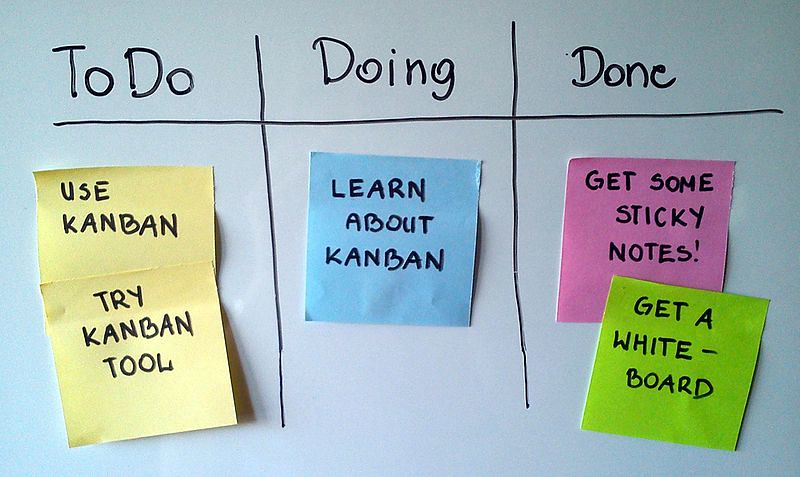A couple of weeks into the first lockdown, in 2020, I started keeping a list of the things I had completed each week and e-mailing it to my manager before I shut down my computer on a Friday afternoon. The reasons I started doing this were created by lockdown, but I’ve carried on doing it ever since because it had a rather glorious side effect; it is motivating.
Instead of trying to make progress through a to-do list which never seems to get shorter, I am now measuring my achievements through a “done list” which gets steadily longer over the week. Sometimes it stays stubbornly short for the first few days, if I’m working on a longer task, but then I get to add something substantial to it, and it starts to grow again.
I’m not the only one who thinks a done list is a good way of doing things, but if you can’t quite see how it would work for you in isolation, then you might like to try a technique called Kanban. Kanban comes from the Japanese for signboard, and is a way of visualising progress, including what you have already done.
Photo credit: Kanban Tool




 Enterprise sits within the Engagement, Influence and Impact domain, however enterprise skills feature in all four sections of the RDF. Enterprise isn’t a stand-alone skill you can develop in isolation, it requires a whole host of competencies and attributes. In fact I have identified 38 descriptors within the RDF which relate to enterprise.
Enterprise sits within the Engagement, Influence and Impact domain, however enterprise skills feature in all four sections of the RDF. Enterprise isn’t a stand-alone skill you can develop in isolation, it requires a whole host of competencies and attributes. In fact I have identified 38 descriptors within the RDF which relate to enterprise.
